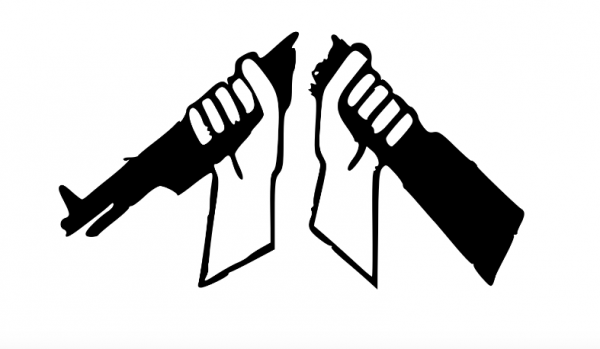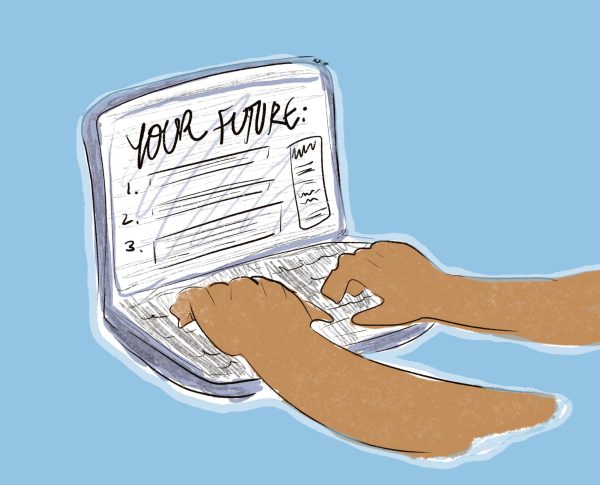Being A Conscientious Objector

On a sunny Saturday afternoon, a group of teenagers gathered at the Ann Arbor Friends Meeting House for a conscientious objector workshop. When young men turn 18, they are required to register for the draft. Soon, young women will most likely have to register as well. Registering as a conscious objector – someone who is morally against war – excludes them from the draft.
There are two different types of conscientious objectors: the kind that still participate in the military and the kind who do not. The latter is simply a civilian who is required to do work for their country. It is important that a conscientious objector does not judge anyone who does decide to participate in the military – everyone has their own personal abilities of what they can and cannot do. Being a conscientious objector does not put them on a higher moral ground than anyone else.
When a conscientious objector is in the military, they do not carry a gun and they don’t kill anyone. “It’s a precarious position to be in, because the other soldiers are not comfortable being with a soldier that doesn’t carry a gun,” Sheila Johnson said, a member of Friend’s Meeting who was running the workshop. “They’re going to get a lot of criticism and harassment.”
Desmond T. Boss didn’t pay any attention to the criticism he received. Doss was the first conscientious objector to receive a medal of honor for his heroic actions in World War II. He served as a combat medic and saved countless lives. “There were other important jobs to be done other than having to take lives,” Doss famously said. “I was willing to go to the front lines to save life, but not to take life.”
“The purpose of the draft is to be ready for war,” Johnson said. “And I can tell you right now that our country is ready for war, and we’re ready to staff a military as big as we had in World War II— maybe bigger. And they will have you in uniform in 10 days. That’s literally possible. That’s why we are very, very concerned about this.”
The workshop stressed that it is never too early to start documenting one’s conscious objector beliefs. The Selective Service reviews everything – from letters you write stating your beliefs, to other people’s’ testimonies about your views. “Even if [the draft] never happens, at least you’re ready,” Johnson said. “But if it does happen and you’re not ready, that one’s bigger. The consequences there are huge.”
The draft is not something that is unforeseeable in the future. The U.S. has implemented the draft numerous times: during the Civil War, World War I, World War II, the Korean War, and the Vietnam War.
And now, according to Johnson, the U.S. is in an endless war.
“A lot of people don’t realize that we have troops stationed in most countries in the world,” Johnson said. “And we have a war that just keeps going on and on in some places. There’s ISIS – these are wars we never heard of before. These are different kinds of things. And if you talk to soldiers, you’ll find out that they keep getting deployed back to these war zones. And it’s hurting them horribly. They’re terribly injured. It’s called a moral injury, because they’ve realized how horrible it is what they’ve been doing or seeing. And they’re having a lot of struggles with it. So, we’re going to need more soldiers. And if we have a bigger war, we’re going to have to do this [draft.]”
The selective service is different than is used to be. During the Civil War, wealthier people would pay others to stand in for them. In addition, there were all kinds of deferements. For example, if someone was a student, was married, had a baby, or just had connections in high places, they could get excluded from the draft. Now it is a lottery, and getting a deferment is harder than ever.
In Vietnam, the most recent draft war, the lottery was used. “I was there when the lottery happened,” Johnson said. “I remember I was [watching] on the TV, and what they did was they called one number between one and 366, and that was a day of the year.”
If they drew 222, for example, everyone born on September 9th would automatically be drafted into the war. “That was a very tense night for the entire country, because everyone had a brother, a son, a husband, or something,” Johnson said. “It didn’t matter if you had a little baby, it didn’t matter what your deal was.”
The demographic that is considered eligible for the draft is probably going to expand as well. As women continue to gain more equal rights in the military, they will likely soon be included in the draft. In addition, Johnson passed on the fact that there has been talk that people older than 26 years old, and skilled workers – such as engineers and doctors – will be considered eligible for the draft in the future.
The workshop ended on the note that while being a conscious objector requires lots of planning and documentation, if someone’s beliefs are strong it is worth it.









